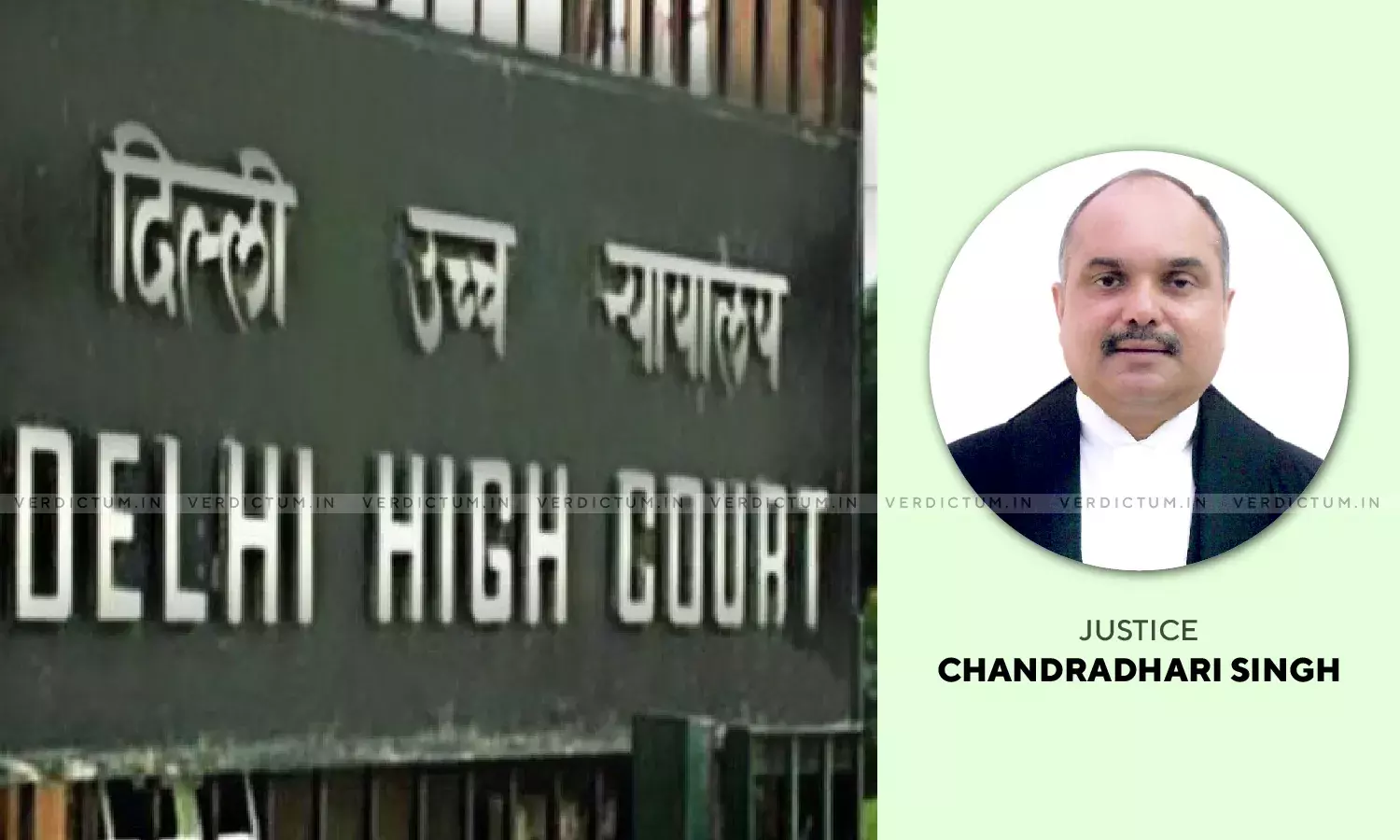Speedy Justice A Fundamental Right Under Article 21 Of Constitution - Delhi HC While Granting Bail In Drugs Case
The Delhi High Court while granting bail to the accused in a drugs case has held, "Speedy Justice is a Fundamental Right enshrined under the ambit of Article 21 of the Constitution of India, and the same needs to be given effect by this Court in letter and in spirit, else it will remain as a dead letter of the law".
A bench of Justice Chandra Dhari Singh was hearing a bail application preferred under section 439 of the CrPC seeking regular bail against section 22 of the Narcotics, Drugs and Psychotropic Substances Act, 1985.
The facts alleged by the prosecution were that on 29th October, ASI Pawan Kumar received secret information regarding a person by name of Kamal Kalra, who would deliver ecstasy (a party drug) in Rohini to his associate, who would supply it further to clients. The information was forwarded to the ACP and he approved the raid and compliance under Section 42 of the NDPS Act was adhered to. A trap was laid and Kamal Kalra was nabbed and written notice was served under Section 50. On his refusal to be searched in the presence of a magistrate, a formal search was conducted wherein 100 pills(around 100gms) of ecstasy were recovered. Accordingly, FIR was registered under Sections 22 and 29 of the NDPS Act. On being arrested Kamal revealed under his disclosure statement that he received the contraband from the applicant Mahesh. On 31st October 2017, the applicant was arrested from Dwarka and has been in custody since then. The charge sheet has been filed before the learned ASJ and the charges have been framed by the learned trial court on 15th November 2018.
Mr. Akshay Bhandari assisted by Mr. Digvijay Singh Counsel for the applicant submitted that the present case as alleged against the Applicant is false and fabricated. They further argued that the main accused against whom there is an allegation of being in possession of 42 grams of Ecstasy has already been enlarged on bail by a Coordinate Bench of the High Court vide the order dated 17th October 2019, therefore the applicant is on better footing to be released on bail against the main accused. They further argued that the applicant has been languishing in jail for more than 4 years as an undertrial accused and only 2 witnesses have been examined in 4 years and there is no likelihood of trial being completed in near future.
Ms. Kusum Dhalla APP for State vehemently opposed the bail application and submitted that the contraband recovered from the applicant was of commercial quantity. In case, bail is granted to the applicant is quite likely that he may, again, get involved in drug trafficking and jump bail.
The Court observed, "While considering the question of bail, the Court under Section 37(b)(ii) of the NDPS Act is not required to be merely satisfied about the dual conditions i.e., prima facie opinion of the innocence of the accused and that the accused will not commit a similar offense while on bail, but the court must have reasonable grounds for such satisfaction".
The Court further placed reliance on Union of India v. Shiv Shanker Kesari, (2007) 7 SCC 798 to decode reasonable grounds in which it was observed, the expression of reasonable grounds means something more than prima facie grounds. It connotes substantial probable causes for believing that the accused is not guilty of the offense charged and reasonable belief contemplated in turn points to the existence of such facts and circumstances as are sufficient in themselves to justify the recording of satisfaction that the accused is not guilty of the offense charged.
Going by the observations of the abovementioned case, the Bench came to the conclusion that since the main accused is discharged on bail and no previous criminal antecedents of the applicant are brought to the fore, prima facie reasonable grounds of satisfaction have been met under section 37 of the NDPS Act.
The court further remarked that the "Applicant has been incarcerated for more than 4 years as an undertrial, while only 2 witnesses have been examined and the trial remains pending. Speedy Justice is a Fundamental Right enshrined under the ambit of Article 21 of the Constitution of India, and the same needs to be given effect by this Court in letter and in spirit, else it will remain as a dead letter of the law."
Due to the above-mentioned reasons, the Court released the applicant on bail with certain directions.
Click here to read/download the Judgment



